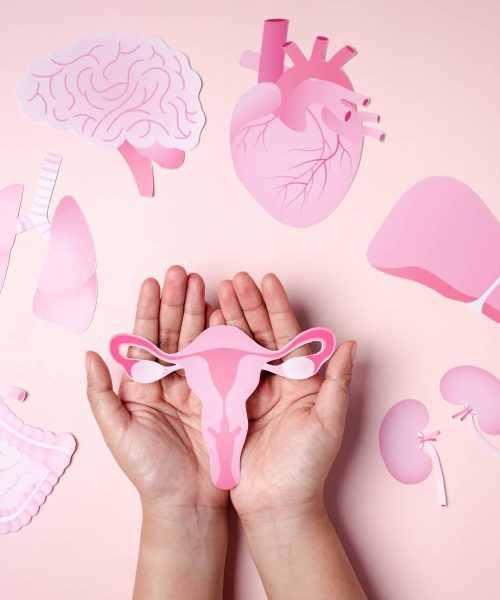Menopause is a natural transition that every woman experiences as she reaches a certain age. While it can be a time of uncertainty and emotional changes, it is important to understand that menopause is a normal part of a woman’s life journey. In this comprehensive guide, we will explore the various aspects of menopause, including its physical and emotional effects, available treatment options, and practical tips for managing symptoms and maintaining overall well-being.
The Menopausal Transition: A Time of Change
Menopause marks the end of a woman’s reproductive years. During this transition, the ovaries gradually decrease the production of hormones such as estrogen and progesterone, leading to the cessation of menstruation. While menopause is commonly associated with women in their late 40s to early 50s, some women may experience it earlier or later in life. The age at which menopause occurs can be influenced by various factors, including genetics, lifestyle, and certain medical conditions.
Common Symptoms and Emotional Changes
Menopause can bring about a range of symptoms that vary in intensity and duration for each individual. Some of the most common symptoms include:
- Hot flashes and night sweats: Sudden feelings of warmth, often accompanied by sweating, can be disruptive and uncomfortable. These episodes may occur both during the day and at night, leading to sleep disturbances.
- Mood swings and emotional changes: Hormonal fluctuations during menopause can affect mood and emotional well-being. Many women experience mood swings, irritability, anxiety, and even depression during this time.
- Vaginal dryness and discomfort: The decrease in estrogen levels can lead to vaginal dryness, itching, and discomfort during intercourse. This can impact sexual intimacy and quality of life.
- Changes in menstrual cycle: As menopause approaches, menstrual cycles may become irregular, with variations in the length and intensity of periods. Eventually, menstruation ceases altogether.
- Sleep disturbances: Hormonal changes, night sweats, and mood disturbances can disrupt sleep patterns, leading to insomnia or poor sleep quality.
It is important to remember that not all women will experience the same symptoms or with the same intensity. Each woman’s menopausal experience is unique, and it is crucial to seek support and guidance to navigate this transition effectively.
Available Treatment Options
When it comes to managing menopausal symptoms, various treatment options are available. The choice of treatment depends on individual needs, preferences, and overall health. Here are some common approaches:
- Hormone replacement therapy (HRT): HRT involves the use of medications that contain hormones (estrogen alone or a combination of estrogen and progesterone) to replace those no longer produced by the ovaries. HRT can effectively alleviate hot flashes, vaginal dryness, and other menopausal symptoms. However, it is important to discuss the benefits and risks of HRT with a healthcare professional, as it may not be suitable for everyone.
- Non-hormonal medications: Certain medications, such as selective serotonin reuptake inhibitors (SSRIs), can be prescribed to manage mood swings, hot flashes, and other symptoms. These medications work by balancing neurotransmitters in the brain.
- Lifestyle modifications: Making healthy lifestyle choices can significantly improve menopausal symptoms. Regular exercise, a balanced diet rich in fruits, vegetables, and whole grains, and stress reduction techniques like yoga or meditation can all contribute to overall well-being during menopause.
- Vaginal lubricants and moisturizers: For vaginal dryness and discomfort, over-the-counter lubricants and moisturizers can provide relief. These products help increase comfort during sexual intercourse and alleviate dryness-related symptoms.
- Complementary therapies: Some women find relief from menopausal symptoms through complementary therapies such as acupuncture, herbal supplements, and mindfulness practices. While the effectiveness of these therapies varies from person to person, it is important to consult with a qualified healthcare professional before incorporating any new treatments into your routine.
Self-Care Strategies for Menopause
In addition to medical interventions, implementing self-care strategies can greatly enhance your well-being during the menopausal transition. Here are some practical tips to consider:
- Prioritize self-care: Make self-care a priority by setting aside time for activities that bring you joy and relaxation. Engage in hobbies, practice mindfulness, or indulge in activities that help you unwind and recharge.
- Maintain a healthy diet: Focus on nourishing your body with a balanced diet rich in nutrients. Include foods that support bone health, such as calcium-rich dairy products or fortified alternatives, and foods high in omega-3 fatty acids, like fatty fish or flaxseeds, to support heart health.
- Stay active: Regular physical activity can help alleviate menopausal symptoms and improve overall health. Engage in exercises that you enjoy, such as walking, swimming, or yoga, to boost energy levels, manage weight, and promote bone strength.
- Seek support: Share your experiences and concerns with trusted friends, family members, or support groups. Connecting with others who are going through or have gone through menopause can provide valuable emotional support and practical advice.
- Practice stress management: Stress can exacerbate menopausal symptoms. Explore stress management techniques such as deep breathing exercises, meditation, or engaging in activities that help you relax and reduce stress levels.
Embracing the Menopausal Journey
Menopause is a natural phase of a woman’s life that can bring both challenges and new opportunities. By understanding the physical and emotional changes that occur during this transition, exploring available treatment options, and implementing self-care strategies, you can navigate menopause with greater ease and embrace this new chapter of your life.







